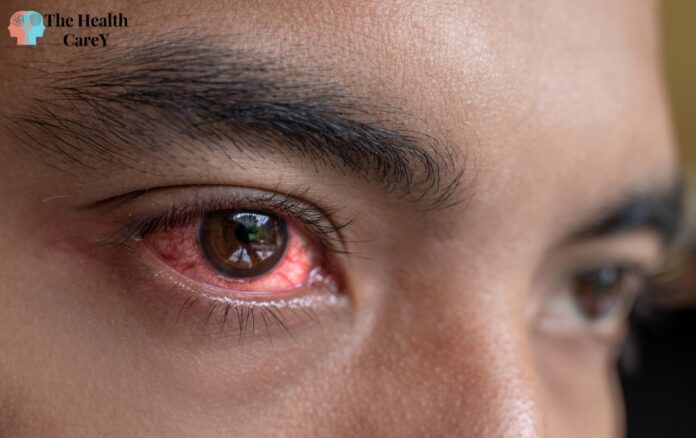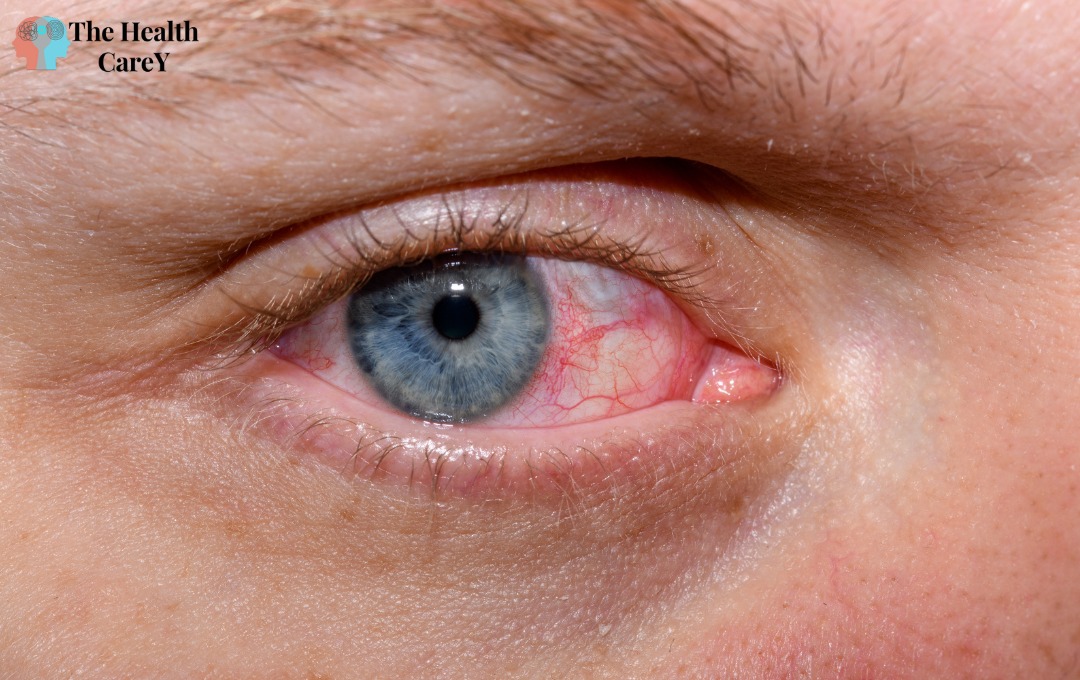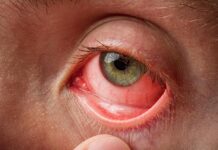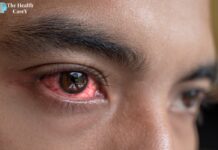Have you ever heard someone say that you can get pink eye from a fart? It’s a common myth that has been circulating for years.
Pink eye, also known as conjunctivitis, is an inflammation of the conjunctiva, the thin, clear tissue that lines the inside of the eyelid and covers the white part of the eye. It can be caused by viruses, bacteria, allergens, or irritants.
While some viruses and bacteria that can cause pink eye can also be found in fecal matter, there is no scientific evidence to support the claim that you can get pink eye from a fart. In fact, the likelihood of contracting pink eye from a fart is extremely low.
However, it is still important to practice good hygiene and wash your hands regularly to prevent the spread of germs and reduce your risk of getting pink eye or other infections.
Can You Get Pink Eye from Farts?
Pink eye, also known as conjunctivitis, is a common eye infection that causes redness, itching, and discharge. It can be caused by a variety of factors, including bacteria, viruses, allergens, and irritants.
One of the most unusual questions that people ask about pink eye is whether it can be caused by farts.
Causes of Pink Eye
Pink eye is caused by inflammation of the conjunctiva, which is the thin, clear tissue that lines the inside of the eyelid and covers the white part of the eye. When this tissue becomes inflamed, it can cause redness, itching, and discharge.
While farts are not a known cause of pink eye, there are several other factors that can contribute to the development of this condition. These include:
- Bacteria: Certain types of bacteria, such as Staphylococcus aureus and Streptococcus pneumoniae, can cause pink eye.
- Viruses: Viral infections, such as the common cold or flu, can also lead to pink eye.
- Allergens: Exposure to allergens, such as pollen or pet dander, can cause pink eye in some people.
- Irritants: Chemicals, smoke, and other irritants can also cause pink eye.
Symptoms of Pink Eye
The symptoms of pink eye can vary depending on the cause of the infection. However, some common symptoms include:
- Redness in the white of the eye or inner eyelid
- Increased amount of tears
- Thick, yellow discharge that crusts over the eyelashes, especially after sleep
- Green or white discharge from the eye
- Itchy or burning eyes
- Blurred vision
- Sensitivity to light
Transmission of Pink Eye
Pink eye can be transmitted from person to person through contact with infected eye secretions or contaminated objects. However, farts are not a known method of transmission for pink eye. The most common ways that pink eye is spread include:
- Touching your eyes with your hands that have come into contact with an infected person’s eye secretions or contaminated objects
- Sharing towels, washcloths, or other personal items with an infected person
- Using contaminated eye makeup or contact lenses
Common Pink Eye Myths
When it comes to pink eye, there are many myths and misconceptions that can cause confusion. Here are some common pink eye myths that you should know:
- Myth: You can get pink eye from a fart. This is a popular myth that has been circulating for years. While it is true that flatulence can carry bacteria and viruses, it is highly unlikely that you can get pink eye from a fart. Pink eye is typically caused by a bacterial or viral infection, and these infections are usually spread through direct contact with an infected person’s eye or by touching an object contaminated with the virus or bacteria. So, unless someone farts directly into your eye, you are unlikely to get pink eye from a fart.
- Myth: Pink eye only affects children. While it is true that pink eye is more common in children, adults can also get the infection. Pink eye can affect anyone, regardless of age or gender.
- Myth: Pink eye is always caused by a bacterial infection. While bacterial infections are a common cause of pink eye, the infection can also be caused by a viral infection or an allergic reaction. It is important to see a doctor to determine the cause of your pink eye so that you can receive the appropriate treatment.
- Myth: Pink eye is highly contagious. While pink eye is contagious, it is not as contagious as many people believe. The infection is typically spread through direct contact with an infected person’s eye or by touching an object contaminated with the virus or bacteria. However, taking simple precautions such as washing your hands frequently and avoiding touching your eyes can help reduce the risk of infection.
Can Cats Get Pink Eye From Humans?
When it comes to pink eye, many people wonder if their pets can catch it from them. Specifically, cat owners may be concerned about whether their feline friends can get pink eye from humans.
Fortunately, the likelihood of a cat getting pink eye from a human is very low. Pink eye, or conjunctivitis, is typically caused by a bacterial or viral infection, and these infections are usually species-specific.
This means that the bacteria or virus that causes pink eye in humans is different from the one that causes it in cats.
However, it is still important to practice good hygiene when you have pink eye, especially around your pets. Wash your hands frequently and avoid touching your eyes, as well as your cat’s eyes, to prevent the spread of infection.
In addition, if your cat does develop symptoms of conjunctivitis, such as redness, discharge, or swelling around the eyes, take them to the vet for proper diagnosis and treatment. While it is unlikely that your cat caught pink eye from you, there may be another underlying cause that needs to be addressed.
Prevention and Treatment
Preventing Pink Eye
To prevent pink eye, you should practice good hygiene. Wash your hands often with soap and water, especially after using the bathroom, blowing your nose, or touching your eyes.
Avoid touching your eyes, nose, and mouth, and avoid sharing personal items such as towels, washcloths, and makeup with others. If you wear contact lenses, follow proper cleaning and storage procedures.
Treating Pink Eye
If you develop pink eye, treatment depends on the cause.
If it is caused by a virus, antibiotics will not help and the infection will usually clear up on its own within a week or two.
You can use warm compresses to relieve symptoms and help reduce swelling and redness. Over-the-counter eye drops or artificial tears may also help soothe your eyes.
If your pink eye is caused by bacteria, your doctor may prescribe antibiotic eye drops or ointment. Be sure to use them exactly as directed and for the full course of treatment, even if your symptoms improve.
If you wear contact lenses, you may need to stop wearing them until your symptoms have resolved.
In some cases, pink eye may be caused by allergies. In this case, your doctor may recommend allergy medications or eye drops to help relieve symptoms.
If your pink eye is severe or does not improve with treatment, your doctor may refer you to an eye specialist for further evaluation and treatment.
Meaning of the Pink Evil Eye
Pink eye, also known as conjunctivitis, is a common eye infection that causes redness, itchiness, and discharge from the eyes. It can be caused by bacteria, viruses, or allergens.
However, one of the most common myths about pink eye is that it can be caused by a fart.
While it is true that flatulence can carry bacteria and viruses, there is no evidence to suggest that it can cause pink eye.
Pink eye is primarily spread through direct contact with an infected person’s eye secretions or by touching an object contaminated with the virus or bacteria and then touching your eyes.
It is important to note that pink eye is not always caused by poor hygiene or lack of cleanliness. It can also be caused by allergies, irritants, and other factors.
Therefore, it is important to practice good hygiene and avoid touching your eyes to prevent the spread of pink eye.
If you do develop pink eye, it is important to seek medical attention to determine the cause of the infection and receive the appropriate treatment.
This may include antibiotics, antiviral medication, or other treatments depending on the cause of the infection.
Frequently Asked Questions
Is it possible to contract pink eye due to fecal matter exposure?
Yes, it is possible to contract pink eye (conjunctivitis) due to fecal matter exposure. Fecal matter can contain harmful bacteria and viruses that can cause an infection if they come into contact with your eyes.
What are the primary ways in which conjunctivitis is transmitted?
Conjunctivitis can be transmitted through direct contact with an infected person’s eye secretions, such as tears or discharge. It can also be spread through indirect contact, such as touching an object contaminated with the virus or bacteria and then touching your eyes.
Can pet animals be a source of pink eye in humans?
Yes, pet animals can be a source of pink eye in humans. Some animals, such as cats and dogs, can carry bacteria that can cause conjunctivitis. It is important to wash your hands after handling pets to prevent the spread of infection.
What are the typical symptoms to look out for with pink eye?
The typical symptoms of pink eye include redness, itching, burning, tearing, and discharge from the eyes. You may also experience sensitivity to light and blurred vision.
How can one effectively prevent the spread of conjunctivitis?
To prevent the spread of conjunctivitis, it is important to practice good hygiene. Wash your hands frequently, avoid touching your eyes, and avoid sharing personal items such as towels or makeup. If you have pink eye, avoid close contact with others until the infection has cleared.
Are there specific environments where pink eye is more easily contracted?
Pink eye can be contracted in any environment where there is close contact with infected individuals or contaminated objects.
Places such as schools, daycare centers, and nursing homes may have a higher risk of transmission due to the close proximity of individuals.
Also Read:





















